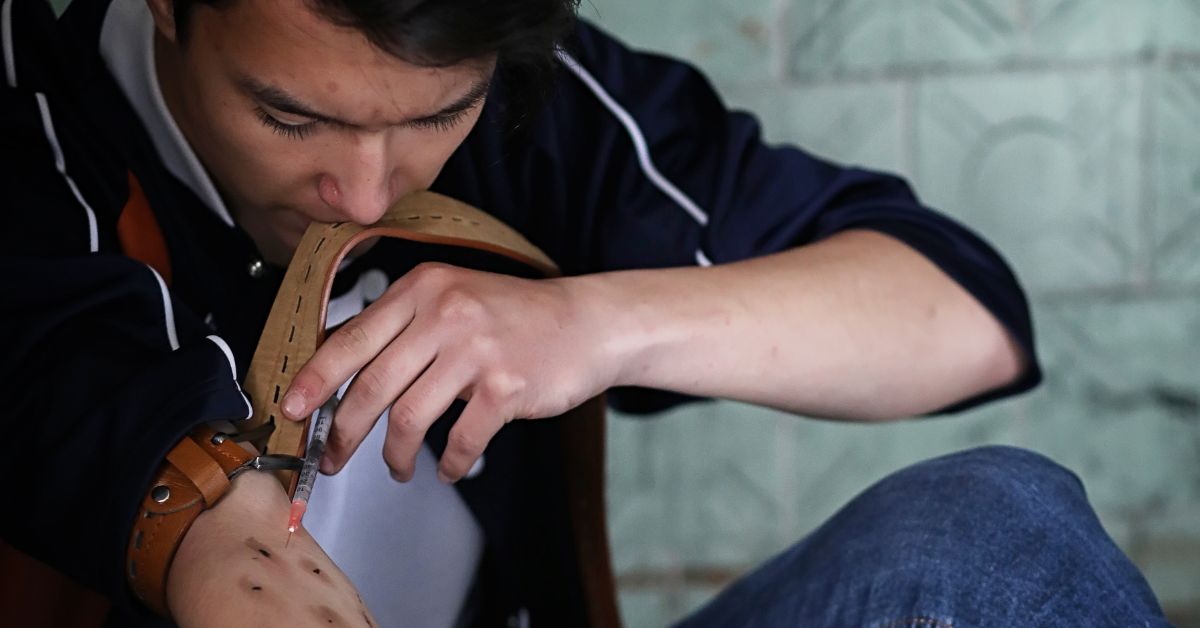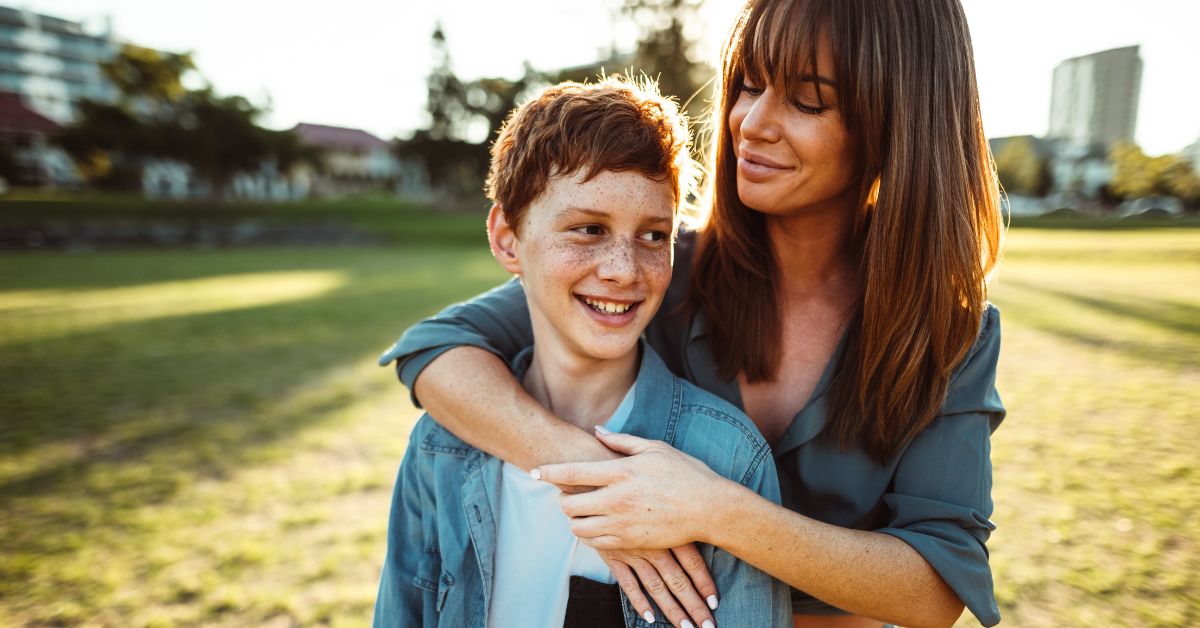Discovering your child has drugs in their room can be a heart-stopping moment. You may feel a mix of fear, confusion, and a profound sense of concern. You find yourself frozen. Caught between the instinct to confront and the need to understand. But remember: You’re not alone.
It’s a delicate dance. On one hand, your protective instincts are surging, urging you to act right now. On the other, there’s a quiet voice reminding you that this moment could redefine your relationship with your child. What unfolds next is crucial. You have to address the situation to forge the path towards healing and trust.
Approach this conversation with the care it deserves. Remember, it’s not just about what you found but about why and what comes next. Please take a deep breath, and let’s walk through this together. Many have gone through this journey before. Even when each step might feel uncertain, remember that there is hope ahead.
Finding Drugs in Your Child’s Room: The Initial Shock
This may be a heart-stopping moment. It can feel like a tornado has ripped through the quaint little village of your family life. It’s as if the ground beneath you gives way, leaving you free-falling into uncertainty. Those initial feelings? They’re a cocktail of shock, fear, betrayal, and confusion. It’s never easy for a parent to find that their beloved child is using drugs.
Remember to focus on immediate safety checks to ensure their well-being in this storm of emotions.
Don’t dive into conclusions or let panic dictate your actions. Assessing whether there is an immediate risk to their health is vital.
Then comes the delicate balance between preserving evidence and respecting privacy. Like a gardener discovering an unexpected weed in their beloved bed of roses, the instinct might be to yank it out.
Take a moment for careful consideration. It leads to a better understanding of its roots without hurting trust.
WATCH: Free, confidential workshop that explains how to "Love Another Way"
Assessing the Situation Calmly
When you stumble upon drugs in your teen’s room, the rush of emotions could be overwhelming. Yet, amidst that storm of feelings, anchoring yourself in calm is important. Assessing the situation calmly isn’t about suppressing your feelings. It’s about channeling them into a constructive response.
- Pause and Process: Before reacting, take a deep breath. Allow yourself a moment to absorb the shock and ground your thoughts.
- Evaluate Immediate Risk: Consider if there is an immediate danger to their health.
- Gather Context: Look at the bigger picture—could there be an innocent explanation? Collect information without jumping to conclusions.
The following steps involve:
- Plan Your Approach: Decide how and when you will talk with your child about what you found.
- Understand Instead of Judge: Recognize that finding drugs does not define your child. This is an incident, not their identity.
Approach the situation with a level head and a steady heart. This way, you foster open communication and pave the way for effective problem-solving. In this context, parents might consider whether they should drug test their teenager. This may be a step towards their safety and addressing concerns about substance use.
Approaching to Your Child When You Find Drugs in Their Room

Confronting your child upon discovering drugs requires firmness and understanding. It’s about initiating an open and honest conversation without alienating your teenager. This is crucial in preventing the progression towards addiction.
In preparation for this conversation:
- Choose a Neutral Setting: Use a safe and non-threatening place to encourage dialogue.
- Stay Calm: Approach the topic with a clear mind to prevent the discussion from becoming emotionally charged.
During the discussion:
- Express Concern, Not Anger: Make it clear that your priority is their health. Punishing them is not your goal.
- Listen Actively: Give them space to share their side of the story. Don’t interrupt or judge.
To foster an environment conducive to honesty, remember:
- Avoid Blame Language: Use “I” statements such as “I feel concerned” instead of “You make me worried.”
- Seek To Understand: Ask questions about their experiences with drugs. Show genuine curiosity rather than interrogation.
Maintain an atmosphere where open and honest conversation is welcomed. Invite your teenager into a space where they can discuss potential issues with addiction without fear.
This approach lays a foundation of trust and mutual respect, essential for navigating these challenging waters together.
NEW: How to make the shift from "Mom Code" to prioritizing your own well-being
Strategies for an Open Dialogue on Teen Drug Use
Imagine communication lines as fragile threads weaving through the fabric that holds families together; pulling too hard might snap them, but ignoring them could let them unravel unnoticed.
To address concerns about teenage drug use effectively:
- Listen more than speak: Sometimes silence speaks louder than words ever could.
- Be age-appropriate: Treat young minds respectfully. Don’t overwhelm them.
Understanding why teens turn to drugs requires us to look into their world through clear lenses. Peer pressure isn’t always apparent. Stress doesn’t always show up as distress signals. Mental health often masquerades as something more benign until it isn’t.
Holding On To Hope What Comes After Finding Drugs
Setting up a supportive home environment post-discovery means planting seeds that nurture growth amidst soil shaken by upheaval. Promote more sunlight (transparency) and less shadow (secrecy). Preventive measures against teenage drug use involve setting boundaries clear enough that they don’t blur easily under pressure nor break under weighty expectations.
Reinforcing Positive Behaviors And Seeking Support For Yourself As Well
In the wake of discovering your kid’s involvement with drugs and alcohol, it’s essential to reinforce positive behaviors. Your goal is to protect your relationship for the long term. Your initial reaction might be to panic or lash out, but it’s critical to channel that energy into supportive actions.
- Recognize Efforts: Acknowledge when your child makes good decisions or shows progress.
- Encourage Healthy Hobbies: Support involvement in sports, arts, or other activities that build self-esteem.
Maintaining a bond with your child is crucial; remember you are laying the groundwork for trust and communication later in life. As you navigate this challenging time. Stay involved, and participate in their life without being overbearing. Show interest in their passions and friends.
It’s also vital to seek support for yourself during this period. Joining family support groups can provide comfort and advice from others who have walked a similar path. Also, you can experience and gain insights on how best to support your child.
Learning about addiction recovery can help demystify what your child is going through. By helping them avoid drugs and alcohol, you strengthen yourself emotionally. This ensures that both of you will emerge stronger and more connected.
SEE: Find out why your boundaries keep getting crossed (and how to reinforce them)
Identifying Signs Of Teenage Drug Use

When it comes to identifying signs of drug addiction in young adults, vigilance is crucial. It’s important to remember you’re not parenting an addicted adult; the strategies and approaches used with younger individuals should be different.
Addiction can subtly integrate into daily life until its patterns are clear. Regardless of whether the substance is a drug or alcohol, the warning signs often follow similar threads. They demand our focused attention and tailored intervention for this vulnerable age group.
Pay close attention to:
- Behavioral Changes: Is there an increased secrecy or sudden changes in social circles?
- Physical Symptoms: Look for unexplained weight loss, changes in sleep patterns, or deterioration of physical appearance.
- Mood Swings: Severe and rapid mood shifts may indicate something deeper is happening.
- Neglect of Responsibilities: A drop-off in performance at school or work can be a red flag.
Recognizing these symptoms early on can make all the difference when it comes to addressing addiction and seeking help. Each sign might not scream “addiction,” but together, they form a picture that calls for attention and action.
Navigating Through Rehab Treatment Options
Exploring intervention methods like family therapy sessions can be like navigating uncharted waters. Engage professionals who know these currents to guide your family.
As you stop worrying about your drug addict child and start actively seeking solutions, evaluating if addiction treatment or rehab is necessary becomes an arduous process of looking past fears to focus on the most supportive recovery path for your child.
This perspective allows you to approach the situation with clarity and purpose, ensuring that every decision contributes positively to their journey towards healing.
WATCH: Free, confidential workshop that explains how to "Love Another Way"
Addiction Treatment Centers: A Guided Pathway To Recovery
Navigating the road to recovery from drug abuse is rarely straightforward, especially when facing the reality of what to do when your child tests positive for drugs.
Addiction treatment centers provide more than just rehabilitation. They offer a structured and supportive environment where young people can begin their healing journey.
These centers are communities that specialize in understanding the complexities of addiction and deliver tailored support, guiding families through such challenging times with compassion and expertise.
Please consider:
- Research is Key: Dig into each center’s programs. Ensure they have experience with teenage drug rehab.
- Treatment Customization: Look for places that tailor their approach based on individual needs. Substance abuse manifests differently in everyone.
It’s crucial to understand that recovery doesn’t end after leaving the center; ongoing support is essential to prevent relapse into drug abuse or substance abuse behaviors.
These centers provide treatment programs that offer a guided pathway through which individuals who have become addicted to drugs. Rediscovering their strength and reclaiming control over their lives is possible. If this is the path you decide to follow as a family, admission will be the first step toward healing and recovery.
Charting A Course For Healing And Empowerment

Navigating the aftermath of finding drugs in your kid’s room involves a series of deliberate and caring actions. Ensure safety and engage in heartfelt conversations. You can embrace the journey to recovery together.
First, you have to prioritize open communication following the discovery. Then engage with support systems to build resilience. And finally, commit to a sustained effort that nurtures healing for you and your child.
This is a continuous commitment to growth, understanding, and empowerment. Families do this with dedication and hope. This way they can turn a moment of despair into an opportunity for deeper connection and shared strength. It’s never too late to get help.
Frequently Asked Questions About What To Do If You Find Drugs in your Child’s Room
What are children who are exposed to drugs?
Children who are exposed to drugs have come into contact with substances that can be harmful and may impact their well-being, behavior, and development.
What Are the Effects of Drug Exposure on Child Development?
Drug exposure can harm a child’s development, causing physical, cognitive, and emotional issues. These problems can lead to struggles with learning and behavior that continue into adulthood.
NEW: How to make the shift from "Mom Code" to prioritizing your own well-being
How do you explain drugs to a 5-year-old?
Explaining drugs to a 5-year-old involves simplifying the concept by telling them that there are certain substances called ‘drugs’ that they should never touch or take because they can make people very sick.
